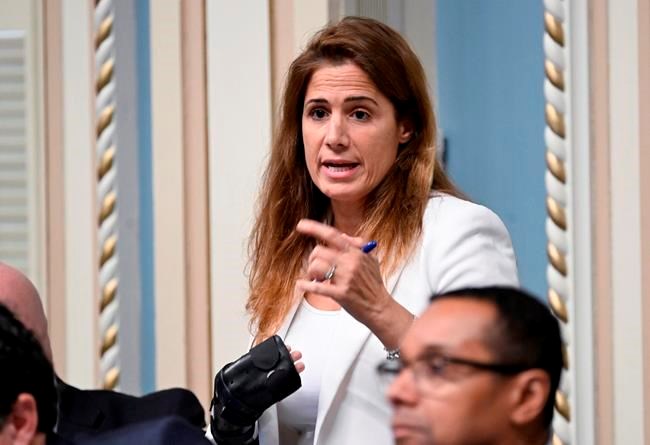MONTREAL — Quebec is moving forward with a plan to hike tuition for out-of-province Canadian students by about 30 per cent, despite a letter from a government-mandated advisory committee urging them to reconsider.
Committee head Éric Tessier said his group wrote to Higher Education Minister Pascale Déry last month to advise her the hikes could compromise access to education and make the province less attractive to talented young people.
He said the province's plan to raise annual tuition from roughly $9,000 to $12,000 is too expensive for many out-of-province students hoping to attend Quebec universities.
"That's 33 per cent, it's enormous," he said in a recent interview, noting other provinces generally charge between $6,000 and $9,000 for out-of-province students.
Tessier said the Comité consultatif sur l'accessibilité financière aux études, which focuses on access to education, also believes students of all origins are bearing too much of the cost of funding higher education.
"In recent years the proportion of funding for universities has been a little more on the shoulders of students, and less and less on the ministry," he said.
But a spokesman for Déry said the committee's letter disregards the key goals of the tuition hike, which include correcting the financial imbalance between French and English-speaking universities and reducing the share of public funding going to out-of-province students who often leave after graduation.
Déry's office noted the committee, which is mandated to advise her department, sent their letter after the deadline to submit opinions had already passed.
The spokesperson said the government is focusing on implementing its plan, which includes raising tuition fees by the fall and imposing new rules to ensure most students are proficient in French when they graduate.
"We are staying focused on our orientations and will continue to work with the network to implement the new fee schedule as well as measures to develop the French language skills of students outside Quebec in English-speaking universities," communications director Simon Savignac wrote in an email.
The government originally threatened in October to nearly double tuition to $17,000 from $8,992, but later reduced the amount of the increase to $3,000.
Tuition is set to rise to $12,000 beginning next fall, with one English university — Bishop's — exempt because of its location outside Montreal. The government will also require that 80 per cent of the students from outside Quebec at all three English-language universities graduate with an intermediate knowledge of spoken French by the 2025-26 academic year.
Quebec also announced last year that it would charge universities $20,000 for every international student they admit and reinvest that money into the French-language university network.
The government has said the tuition plan will help protect the French language by reducing the English schools' share of the university student population, which it said stands at about 25 per cent.
In separate responses, the province's two largest English universities urged the province to consider the committee's recommendations.
"The report by the government’s own committee outlines many arguments that we have raised with the minister and the government over this issue during the last few months," reads a statement from McGill University. "We encourage the minister to listen to the experts of the committee that reports to her, who are giving her advice and data as part of her ministry's own consultation processes."
Concordia University noted the committee has requested further details on the reasoning behind the tuition increases, something the schools have also asked for.
"Not considering the recommendation would certainly show further disregard for due process and expert bodies," a spokesperson for Concordia wrote.
This report by The Canadian Press was first published Feb. 4, 2024.
— With files from Jacob Serebrin
Morgan Lowrie and Thomas MacDonald, The Canadian Press




